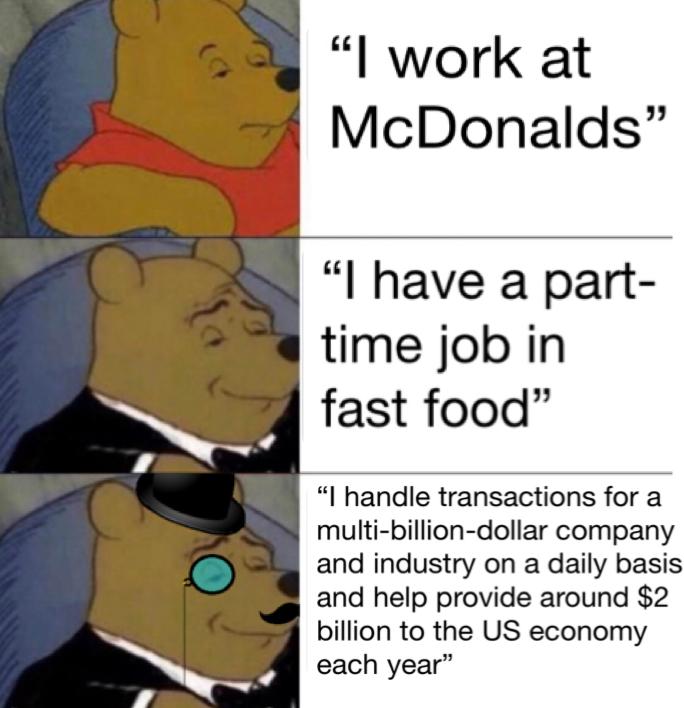“Help, I'm graduating soon and can’t talk to employers”
The Careers and Networking Workshop helped students understand the importance of participating and communicating with industry partners. By Beiwei Lin
As Bachelor of Science students, understanding lectures and going to tutorials form the basis of uni life. We battle midsems and exams to get our degree, but as the semesters go by, it becomes pretty clear that getting a degree is only a part of the work. We still have got to convince employers we know what to do with it.
Networking and talking to employers are particular skills and it’s easy to forget about them until you’re sitting at a job interview, wishing you knew what to say. To help students learn how the whole careers and networking process, the Science Student Society and the Student Peer Leader Network held a Careers and Networking Workshops as part of Science Festival 2019. This was my chance to find out more about this whole ‘Networking’ thing.
For the first part of the event, we heard from representatives from the Student Peer Leader Network, who were full of tips on forming good impressions and building meaningful connections while networking. Some of the highlights were:
- Do your research on the representative/company beforehand, to get an idea of what common interests/fields you have; if the networking session followed a panel or presentation, discuss your thoughts on what the person had mentioned to show your interest for their work/company
- Time may be limited for making strong impressions, so prepare and practice 'Elevator Pitches' - a short, concise summary of who you are and what you do, with emphasis on your unique selling points; why you are interested in them, but also why they should be interested in you
- Think about what you want to get out of the networking session beforehand, and close off conversations appropriately, e.g. exchanging email addresses, connecting on LinkedIn, or maybe even scheduling a future in-person meeting.
The Student Peer Leader Network also shared the employability and careers-related resources available to students:
- The online EmployMe portal, with resources such as a CV and cover letter builder, interview simulator, careers compatibility assessment, industry insight factsheets, and more. There. Is. Just so. Much. Stuff. I think at one point I had about thirty tabs open.
- The workshops and drop-ins that happen on campus, including personal resume reviews!
- Careers Online: the University of Melbourne jobs and events noticeboard. It’s where you can find events like this one, as well as internships, vacation programs, grad roles, part-time/casual gigs and even volunteer roles.
For the second hour of the workshop, we heard from presenters in both industry and academia about their work, and their advice for students thinking about future steps. One great piece of advice was about the way you ‘sell’ yourself in your introduction.
For example, when asked ‘What do you do?’, I default to ‘I’m studying Science at uni.’ While this is obviously true, Master of Biotechnology director, Dr Matthew Digby, remarked that in science we may have a tendency to state ‘just the facts’, these don’t make for a convincing first impression. He expanded with the example that, ‘I’m a scientist’ may be adequate to describe his work in lactation biology, but ‘I’m working on research to improve the efficiency of the dairy industry’ is undoubtedly going to capture curiosity and attention at a networking event
Of course, as students, there are times when the most impressive thing you can recall doing is making it to your 9am lecture, but in fact, refining how you communicate your experiences and achievements can make all the difference. For example, a volunteering role selling tickets at a festival is ‘valuable customer service experience, interacting positively with a high volume of customers’; a uni project with a difficult group member is ‘a time when you overcame a challenge and demonstrated strong communication and teamwork skills’.

Hearing from people from such an array fields, it was clear that a background in science could mean a role in a wide variety of careers. You could find yourself doing anything from working as an engineering manager in industry, to doing postdoctoral research at WEHI, or editing a scientific journal. These paths all have a few common prerequisites: strong networking skills, strategies for forming meaningful connections, and probably quite a few iterations of perfecting your ‘Elevator Pitch’ in front of the mirror.
By Beiwei Lin, Science Student Ambassador.
Find out more:
- Science Festival
- Science Student Society
- Student Peer Leader Network
- Get involved in Science: become a Science Student Ambassador